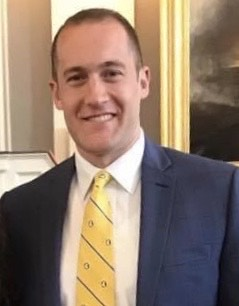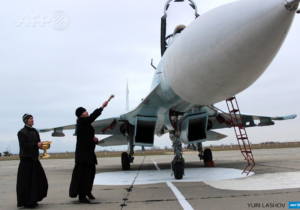Shlomo (greeting of “peace” in Syriac), my name is Richard Ghazal with In Defense of Christians, an American NGO whose mission is to advocate for persecuted Christian communities in the Middle East.
I’d first like to thank the Syriac Center for Strategic Studies for convening such an important conference to examine and discuss the Treaty of Lausanne on its 100th anniversary, and for inviting me to share my personal reflections on the Treaty’s lasting effect on the Syriac people one century later.
July 24, 2023 marked the 100th anniversary of the signing of the Treaty of Lausanne. The world generally regards the Treaty of Lausanne as one of the many international accords that brought about the end of WWI, and in particular, saw to the establishment of the modern-day Turkish state. However, the Treaty of Lausanne was, and remains, severely flawed, and has enabled the on-going persecution and suffering of the indigenous Syriac people for over a century, and counting.
The Syriac people (which includes Syriacs, Assyrians and Chaldeans) have lived in Mesopotamia—including northern Iraq, northeast Syria, and southeast Turkey—since the dawn of human civilization. Indeed, Syriacs are the indigenous people of Anatolia.
As the modern-day legacy of the Sumerian, Akkadian, Babylonian, Assyrian, Aramean and Chaldean civilizations, Syriacs are not just a cornerstone of near eastern history, but indeed an inseparable part of human history and culture.
The Syriac culture is among the world’s most ancient surviving cultures. Syriacs possess a rich and deeply rooted history among the peoples of the Middle East; its effects have even extended into the West, having shaped cultural norms, and served as the driver of religious, social and intellectual currents.
It was the Syriac centers of learning that would eventually play a pivotal role in drawing Europe out of a period of intellectual dormancy. Indeed, it was through the Syriac schools of Edessa, Qennishrin, and Nisibis (which is widely regarded as the world’s first university) that the Renaissance was brought to Europe.
Despite their undeniable contributions to world civilization, the Syriac people have been tested by the many tribulations of history. But make no mistake, the Syriacs are survivors. They’ve survived countless massacres and genocides over the last two millennia, most notably the Ottoman-perpetrated genocide (known as Sayfo), which stole the lives of over 500,000 Syriacs from 1915 to 1923. Despite the creation of the modern Turkish state in the ashes of the Ottoman Empire, Syriacs continue to be persecuted in Turkey even today as a result of the flawed Treaty of Lausanne.
Despite the profound, living legacy of the Syriac people in Turkey, the Treaty of Lausanne failed to recognize even the existence of the Syriac people, which has resulted in the denial of their rights as full Turkish citizens, and equal treatment under Turkish law. This denial of existence continues even today, thereby reinforcing a hostile environment for Syriacs in Turkey.
Section 3, Articles 37-45 of the Treaty address the rights afforded to non-Muslim minorities in Turkey, including: the free exercise of religion; the freedom of movement; equality before the law; language rights; the freedom to civilly organize; the right to education; the right to an equitable share of public resources; and may others. However, even to this day, these rights are denied to Syriacs in Turkey due to the Treaty’s non-recognition of Syriacs as a distinct, non-Muslim minority group. As a result, Syriacs in Turkey are often barred from the free practice of their faith, the use and instruction of the ancient and holy Syriac language, and denied equitable access to public resources.
Syriacs in Turkey have been subjected to marginalization policies since the early years of the Republic. In traditionally Syriacs regions such as Tur Abdin, Hakkari, Urfa, and Adiyaman, Syriacs have faced economic and civil disenfranchisement and even state-permitted violence.
Names of cities, towns, and historically significant sites were stripped of their original Syriac names and given Turkish names. As a matter of official state policy, families were forced to renounce their ancestral Syriac surnames, and were forced to assume foreign Turkish surnames. The use and instructions of their mother Syriac-Aramaic tongue were forbidden. Syriac religious and cultural expression is greatly impeded, and often prohibited.
Although stateless, Syriacs are loyal and contributing citizens of all societies in which they live, serve and raise their families—including Turkey. However, to this day, Turkey’s weapon of choice against Syriacs is none other than the Turkish legal system. Throughout the second half of the 20th century, and still today, Turkey has jailed scores of Syriac community leaders, clergy, and thought leaders on empty, manufactured charges of terrorism against the Republic. This was the same tactic used to imprison American Pastor Andrew Brunson, and Syriac clergymen Fr. Yusuf Akbulut, Fr. Aho, and many others. Unless the international community takes resolute action, this trend will only continue.
Despite having survived genocide, Syriacs were excluded by Western powers from the negotiation table throughout the 20th Century. Syriacs were forced to abdicate their future to be charted by external powers, and remain invisible, wedged between nations.
However, following 9/11, the War in Iraq, the largely failed Arab Spring, and the Syrian Civil war, the status quo in the near east was significantly disrupted, and the delicately balanced political tableau was upset. In light of these developments, Syriacs must use this geostrategic momentum to ensure that they are not excluded from the negotiation table in the 21st century, or ever again.
The God-given rights of the Syriac people must not be denied in future treaties. The only way to rectify the destructive legacy of Lausanne is to make certain that future international accords recognize the existence of Syriacs as a distinct people. It is critical that the international community take a strong position to rectify this historical flaw, for the sake of the continuity of the indigenous Syriac people of Turkey, and in the greater Middle East.
The indigenous Syriacs of Mesopotamia, and their cultural legacy, are an indelible part of our shared world heritage, as Western civilization is indeed a beneficiary of Syriac heritage. The survival of the Syriac people and heritage is more than just a political matter…in fact, it’s more than just a humanitarian matter. It’s a civilizational question. If the world allows the Syriac heritage to be smothered by the hostile state policies of a supposed “modern republic,” what could that eventually mean for the future of Western civilization?
God set man apart from the animal kingdom, having granted us the faculty to shape our future, through the lessons of history. It’s the decisions we make, and the actions we take, in the present, informed by lessons from the past, that will shape our future. We mustn’t squander this sacred trust by repeating the same mistakes observed historically.
To secure the future of the Syriac people, we must proceed with intentionality, and a keen historical perspective orientated on the future.
I’d like to thank the Syriac Center for Strategic Studies for beginning this conversation.
Thank you, and may God bless you. Fushun ba-shlomo (“remain in peace”).







 Sponsor a student for Christianity & National Security 2024
Sponsor a student for Christianity & National Security 2024